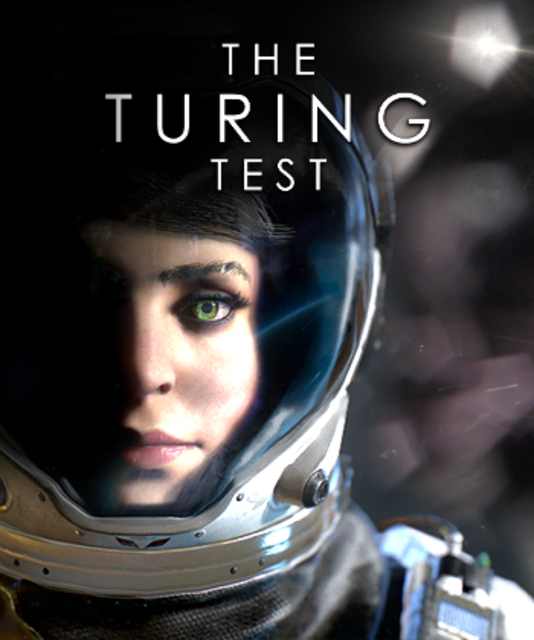Manages to punch above its weight but unfortunately feels painfully derivative
Sci-Fi is one of my favorite genres. I am always fascinated by the imaginative alien worlds, future technology and idealized solutions to current day problems. If there is one subgenre that I feel is tricky to get right, it is the subject of Artificial Intelligence. The main problem is that AI has been a topic in countless films and video games and it is easy to stumble upon the familiar plot of an AI gone rampant. The Turing Test, unfortunately, while narratively creative, is not an exemplar of the genre. The game is also extremely similar to a certain popular Valve franchise.
The Turing Test begins with an AI named T.O.M (Technical Operations Machine) who wakes up the astronaut Ava Turing, from cryosleep. They have received an emergency distress call from their base in Europa (the moon that orbits Jupiter). The AI informs Ava that a deadly organism has broken into the base and that Ava must get in contact with the other astronauts to find a way to stop it. When Ava eventually reaches the base, she is immediately faced with a difficult situation. All of the doors are locked, the base configuration has changed and the only way to progress forward is to solve a series of puzzles. For some extremely contrived reason, T.O.M informs Ava that these puzzles were developed to ensure that only a human can solve them because AIs lack the creativity and ingenuity to do so. The game literally plays like its namesake: The Turing Test, a procedure to tell whether a machine can be as intelligent as a human.

If you have played any first person puzzle platformer in recent memory, The Turing Test will feel instantly familiar. The hook of the game is that Ava is armed with an energy gun that can absorb and shoot charged balls of energy to open/close various doors, lifts and machines. There are also energy cubes that Ava can pick up which also powers these devices. Lastly, she can also operate cranes and lifts to navigate through each puzzle room. After a series of puzzles, there is often an optional secret puzzle room that is more challenging to solve. There are also puzzle-free lore rooms that help flesh out the plot, where you can listen to audio logs and read notes from Ava’s fellow astronauts.

I have major issues with The Turing Test, but strangely admire its effort. The game is clearly developed on a shoestring budget. The menu UI is basic and looks unfinished. The graphics are buggy like how Ava doesn’t have a reflection but her gun does. Subtitles don’t play for all spoken dialogue. The puzzle rooms are very samey rectangular white environments. The puzzles are not evenly paced with widely varying difficulties. And the game tells more than it shows, especially how T.O.M loves to explain the Turing Test and Chinese room experiments to Ava. Yet the game manages to punch above its weight somehow. The graphics are impressive and the voice acting especially for T.O.M by James Faulkner are superb. The music is also excellent. It manages to nail the feeling of being in a cold, sterile environment without feeling bland which is important in a puzzle game where it is easy to spend long durations listening to the same soundtrack.
The Turing Test is a satisfactory puzzler but the story is both the highlight and lowlight for the game. I was genuinely surprised and pleased by the twist in the game’s climax. The ramifications of the reveal were promising and I was hoping for an exciting final act. Sadly the game never manages to deliver after this point. Various character motivations are left unexplained, concluding with multiple versions of the same ending. Ultimately, The Turing Test tries to be more philosophical and intellectual than it actually is. It tries to evoke the memories and feelings of other better puzzlers. And coincidentally, maybe because of its namesake, it tries to pretend to be a game that it is not.
